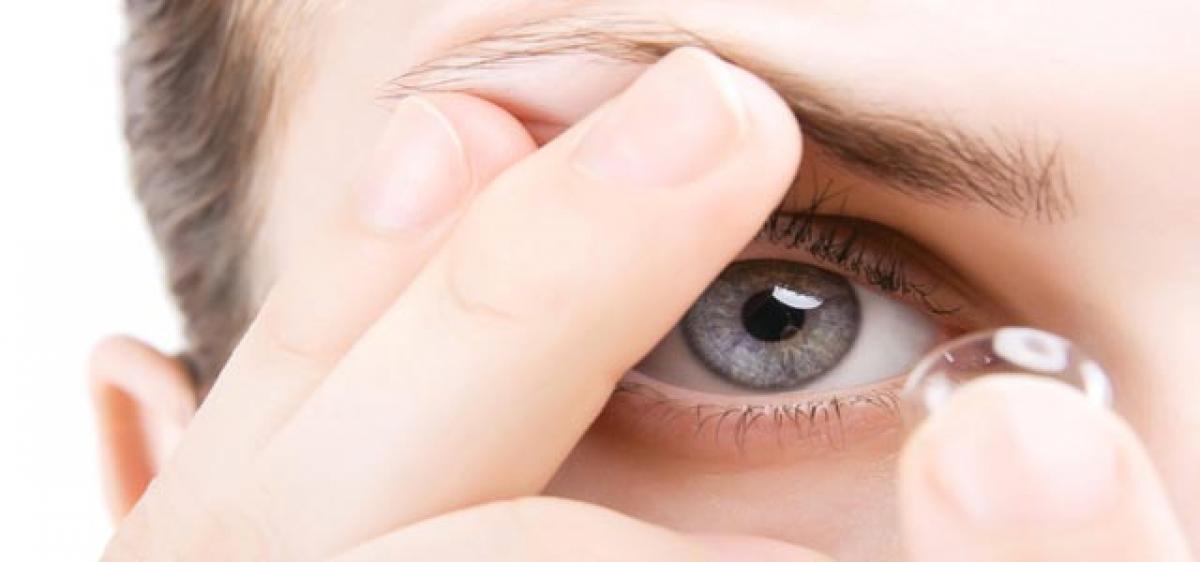Know your contact lenses

Contact lenses are an excellent and convenient choice for nearly anyone who needs vision correction but doesn\'t want to wear eyeglasses.
Contact lenses are an excellent and convenient choice for nearly anyone who needs vision correction but doesn't want to wear eyeglasses. The Common Conditions Treated by Contact Lens are Myopia (nearsightedness), Hyperopia (farsightedness), Astigmatism (blurred vision due to the shape of the cornea), Presbyopia (blurriness of nearby objects).
Types of Contact Lens
- Soft contact lens are the most popular choice for contact lens wearers. They are replaced on a daily, weekly or monthly basis.
- Gas permeable (GP) contact lens are more durable and resistant to deposit buildup. They may be the best choice when the cornea has enough astigmatism
- Color contact lenses are contacts that change or enhance the appearance of your eye color and may also correct your vision.
Contact Lens Designs
- Spherical lens are basic contact lens typically used to correct myopia (nearsightedness) and hyperopia (farsightedness).
- Toric lens help correct for astigmatism
- Multifocal lens are designed to correct presbyopia (age-related loss of near vision)
Wearing Period
- Daily-wear lens are removed every night or at the end of the day.
- Extended-wear lens are worn overnight. You should talk to your eye care professional about how many nights you can sleep in them.
Contact lens and eye infections
Contact lens are a convenient option; however improper care and usage of contact lens can cause eye infections, in severe cases also leading to corneal scarring and loss of vision. Majority of contact lens infections are bacterial in nature. The most common reasons which could lead to these eye infections are:
- Sleeping with your contact lens on
- Extended or over use of contact lens
- Poor hygiene, including reusing or topping off of contact lens solution
The signs of a contact lens eye infection could be blurry vision, watering and discharge of the eye, pain and redness, and light sensitivity. To avoid infection, follow the guidelines below.
Do
- Always wash and dry your hands prior to handling your lens
- Always rub, rinse and store your lens in the recommended solution before and after each use (except single-use lens, which should be discarded after each wear)
Change the lens solution everyday
- Always clean the lens case with solution, wipe with a clean tissue then air-dry after each use by placing the case and lids face down on a tissue
- Change your lens case every three months
- Always apply the same lens first to avoid mixing them up
- Check the lens is not damaged before applying
- Apply your lens before putting on make-up
- Blink often when wearing lens, especially for those who use desktops/laptops for longer hours
Don’t
- Sleep wearing your contact lens
- Use tap water, or any other water, on your lens or lens case
- Put a lens on the eye if it falls on the floor or other surface, without cleaning and storing again
- Apply a lens if it is dirty, dusty or damaged
- Use your lens for swimming, hot tubs or water sports, unless wearing goggles
- Use any eye drops without advice from your contact lens practitioner
- Stand too close to a direct heat source (eg: bonfire, barbeque grill, etc.) when wearing lens.
This could lead to the melting of the lens Author is Consultant at Dr Agarwal’s Eye Hospital.
By Dr Vamsidhar











